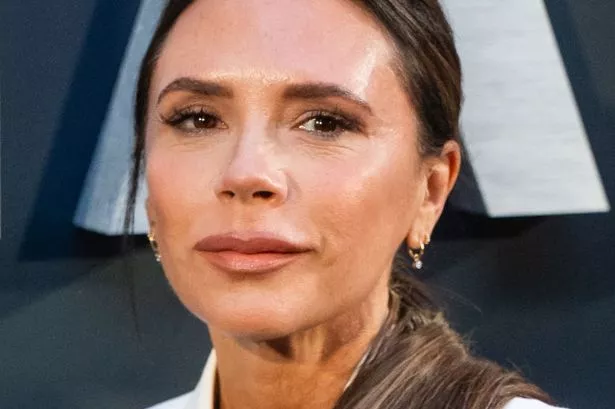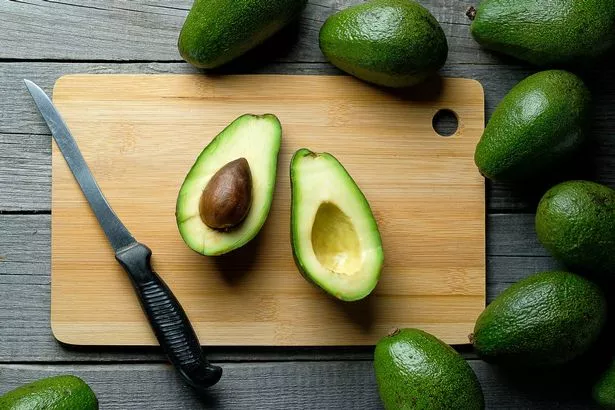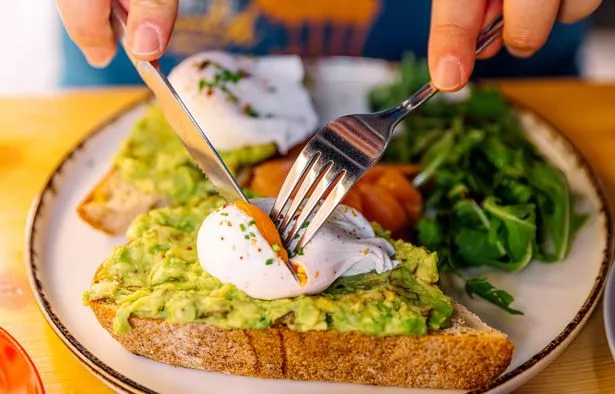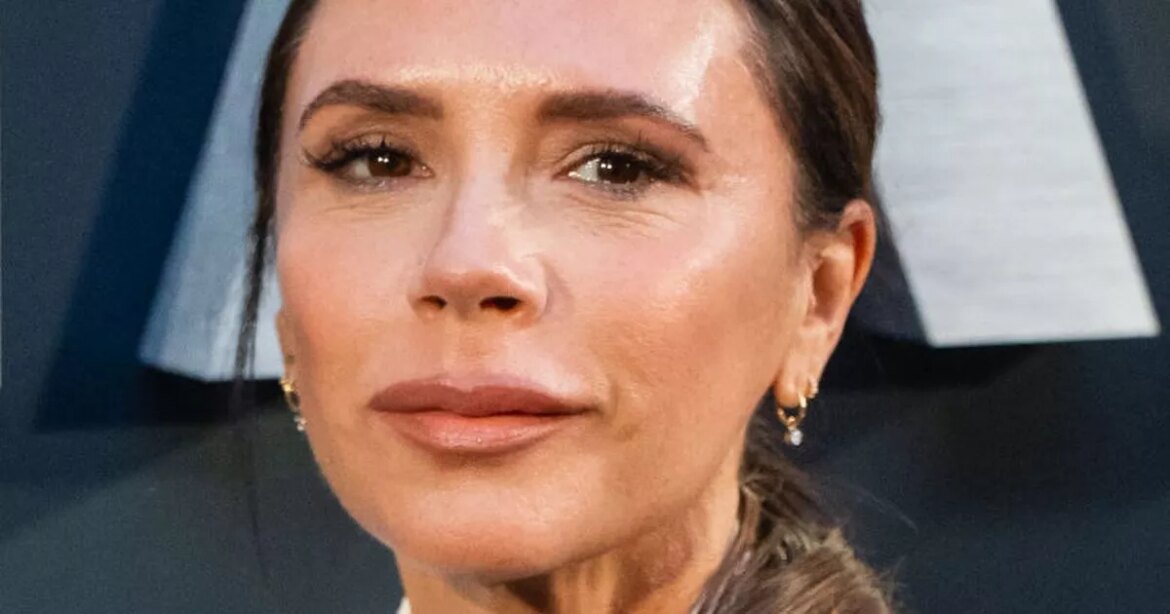The fashion designer is a big fan of a certain breakfast food that is packed with healthy oils and nutrients
Charlotte Smith Senior Lifestyle Content Editor
15:15, 21 Aug 2025Updated 09:25, 22 Aug 2025
 Besides her achievements and career, the mum of four is known for her youthful appearance (Image: Getty)
Besides her achievements and career, the mum of four is known for her youthful appearance (Image: Getty)
It’s no secret that Victoria Beckham, 51, is a household name for many reasons—from being a Spice Girls singer to a famous fashion designer. She is also renowned for her slender silhouette and radiant complexion. Yet, the 51-year-old does not maintain her youthful appearance by mere coincidence—she attributes much of her allure to her disciplined eating habits.
In a 2019 interview with The Telegraph, the mum-of-four revealed she consumes three to four avocados daily to give her skin a luminous boost. Typically, Victoria enjoys avocados for breakfast, either spread on toast or blended into a vibrant green smoothie.
Avocados are a key element of the Mediterranean diet, which is favoured by numerous other celebrities. Penélope Cruz has spoken about following the Mediterranean diet as it reminds her of the culinary delights she savours back in Spain. Cameron Diaz is another who has referenced the diet in her publications, The Body Book and The Longevity Book.
Rich in natural fatty acids essential for skin rejuvenation, avocados are a treasure trove of nutrients that help maintain a smooth and youthful complexion over time. They are also an excellent source of vitamin E, which aids in diminishing visible signs of ageing.
Avocados contain vitamin A, crucial for effective cellular repair. They are also abundant in biotin, a member of the B vitamin family. When applied topically, biotin can alleviate dryness and is recognised for fortifying hair and nails, making them less susceptible to brittleness. Furthermore, avocados offer vitamin E, fibre, and monounsaturated fats, while the antioxidants found in vitamin C shield cells from damage.
 Avocados are great for skin health(Image: Getty)What does research show?
Avocados are great for skin health(Image: Getty)What does research show?
A research study carried out in 2011 revealed avocados contain compounds that may provide protection for the skin against sun damage and inflammation. Exposure to ultraviolet (UV) rays can result in wrinkles and other signs of ageing, as well as increase the likelihood of skin cancer.
In another study conducted in 2010, which involved more than 700 women, researchers investigated the impact of consuming healthy fats and antioxidant-rich micronutrients on skin health. The results suggested that a higher intake of fats, especially healthy monounsaturated fats found in avocados, was associated with improved skin elasticity and a reduction in visible wrinkles.
Additional research indicates that the consumption of avocados could contribute to the enhancement of overall wellness. The results at the end of a 2013 study read: “Avocados contain a very low sugar content with only about 0.2 g sugar per one-half fruit.
“There are eight preliminary avocado cardiovascular health clinical studies that have consistently demonstrated positive heart healthy effects on blood lipids profiles. The consumption of avocados with salads or salsa increases the bioavailability of carotenoids multi-fold, which may add to the potential health benefits.”
 Avocados are rich in biotin(Image: Getty)
Avocados are rich in biotin(Image: Getty)
While it is reported that Victoria consumes three to four avocados daily, numerous nutritionists might consider this excessive, particularly because of the high fat content. You can include healthy fats in your meals by drizzling extra virgin olive oil over your salad or enjoying a handful of nuts.
Prior to making any significant changes to your diet or lifestyle, make sure you speak to your GP. As with any diet, seeking advice from a healthcare professional is the most effective way to guarantee that the plan fits with your own requirements and goals.
What exactly is the Mediterranean diet?
The Mediterranean diet focuses on foods derived from plants and healthy fats. It encourages a diet rich in vegetables, fruits, and whole grains. Extra virgin olive oil serves as the primary fat source in this diet, which may help reduce your risk of heart disease and various chronic health issues. Here is a look at what food is included:
A wide variety of fresh fruits and vegetables is a cornerstone of the diet.Whole wheat bread, brown rice, quinoa, and other whole grains are preferred.Beans, lentils, and chickpeas are excellent sources of plant-based protein.A variety of nuts and seeds are included for healthy fats and nutrients.Extra virgin olive oil is the primary source of fat.Fish, especially fatty fish rich in omega-3s like salmon and sardines, are encouraged.Low-fat dairy products like yoghurt and cheese are included in moderation.Chicken and other poultry are often included in place of red meat.Red wine is often consumed in moderation with meals.
Cognition expert Natalie Mackenzie said: “The Mediterranean diet helps keep your brain sharp and is a great choice for women in their 50s, which is when we start to think about reducing our chances of cognitive decline. What really matters is that it means you’re filling up on the good food that keeps your body and brain happy.
“Think fruit and vegetables such as broccoli and spinach, strawberries and avocado, nuts and seeds, tasty seafood options such as fresh Wild Salmon, vibrant Rainbow Trout, and Halibut and wholesome oils for cooking and dressings such as rich olive oil and versatile canola oil. The diet favours oily fish, and the EPA and DHA omega-3 fatty acids in fish oil are vital for normal brain function and development. Other foods in the diet, like leafy greens, broccoli and salmon, are rich in magnesium, which is neuroprotective and also benefits our blood pressure (high BP is a risk factor for dementia).”
What do experts say?
Lily Keeling, Senior Recipe Development Manager and Registered Nutritionist at Green Chef UK, says avocados are a good source of dietary fibre. She adds: “Fibre is great for the digestive system by contributing to a healthy functioning gut, and monounsaturated fats help maintain healthy cholesterol by lowering LDL cholesterol and raising HDL cholesterol, in turn reducing your risk of heart disease. Incorporating avocados into a balanced diet is a great way of getting these nutrients in.”
Hasan Kasem, a consultant bariatric surgeon at Elanic Hospital said: “There is strong scientific evidence that the Mediterranean diet is associated with reduced cardiovascular risk eg heart attacks, strokes etc, and good evidence for diabetes prevention and reduced dementia risk as well as certain cancers like breast and bowel.”
Speaking to Superdrug Online Doctor, British GP Dr Hana Patel said: “The Mediterranean diet has long been celebrated as one of the healthiest eating patterns in the world. Its popularity dates back to the 1970s, when American physiologist Ancel Keys observed that people living in regions like Greece and Southern Italy had strikingly low rates of heart disease and cholesterol compared to those in the West.
“Since then, decades of research have confirmed that this way of eating can protect the heart, reduce the risk of chronic disease, and promote longevity. At its core, the Mediterranean diet champions plant-based foods—fresh vegetables, fruits, legumes, nuts, and wholegrains—flavoured with herbs and spices rather than excess salt.
“It also focuses on healthy fats, especially from extra-virgin olive oil and avocados, which provide anti-inflammatory benefits, while lean proteins, particularly fish and seafood, are favoured over red meat. What makes this diet especially appealing today is not just its impact on heart health, but also its effect on the skin.
“Packed with antioxidants like vitamin C, vitamin E, and polyphenols, alongside omega-3 fatty acids, the Mediterranean diet has been linked to enhanced skin hydration, improved elasticity, and even a slower rate of visible ageing—explaining why so many A-listers, including Victoria Beckham, have embraced it in recent years.”
 Victoria Beckham often talks about only eating grilled fish and vegetables(Image: Getty )
Victoria Beckham often talks about only eating grilled fish and vegetables(Image: Getty )
Professor Franklin Joseph, medical director at Dr Frank’s Weight Loss Clinic, said: “Victoria Beckham embracing the Mediterranean diet is one of the best decisions she could make for her long-term health. It’s one of the most evidence-based eating patterns in the world – shown to reduce the risk of heart disease, stroke, type 2 diabetes and even Alzheimer’s.
“For someone like Victoria, who prioritises staying slim and energised, the Mediterranean diet is ideal. Olive oil provides healthy monounsaturated fats that keep hormones balanced and appetite stable. Oily fish like sardines or salmon are rich in omega-3s, which support brain function and reduce inflammation.
“Legumes like chickpeas and lentils are not only great plant-based protein sources, but they also keep blood sugar steady – helping to prevent cravings and energy dips throughout the day. Whole grains such as quinoa, farro and brown rice are slowly digested carbs that fuel the body while supporting digestive health. Unlike fad diets that demonise carbs, the Mediterranean diet encourages smart carbohydrate choices.
“This style of eating is also incredibly sustainable. It’s not about restriction or cutting out food groups, but about enjoying real, wholesome food in a balanced way. That’s why it continues to be associated with longevity and healthy ageing. It’s encouraging to see a high-profile figure like Victoria spotlighting a way of eating that’s not only beneficial for weight management, but also for long-term disease prevention.”


Dining and Cooking